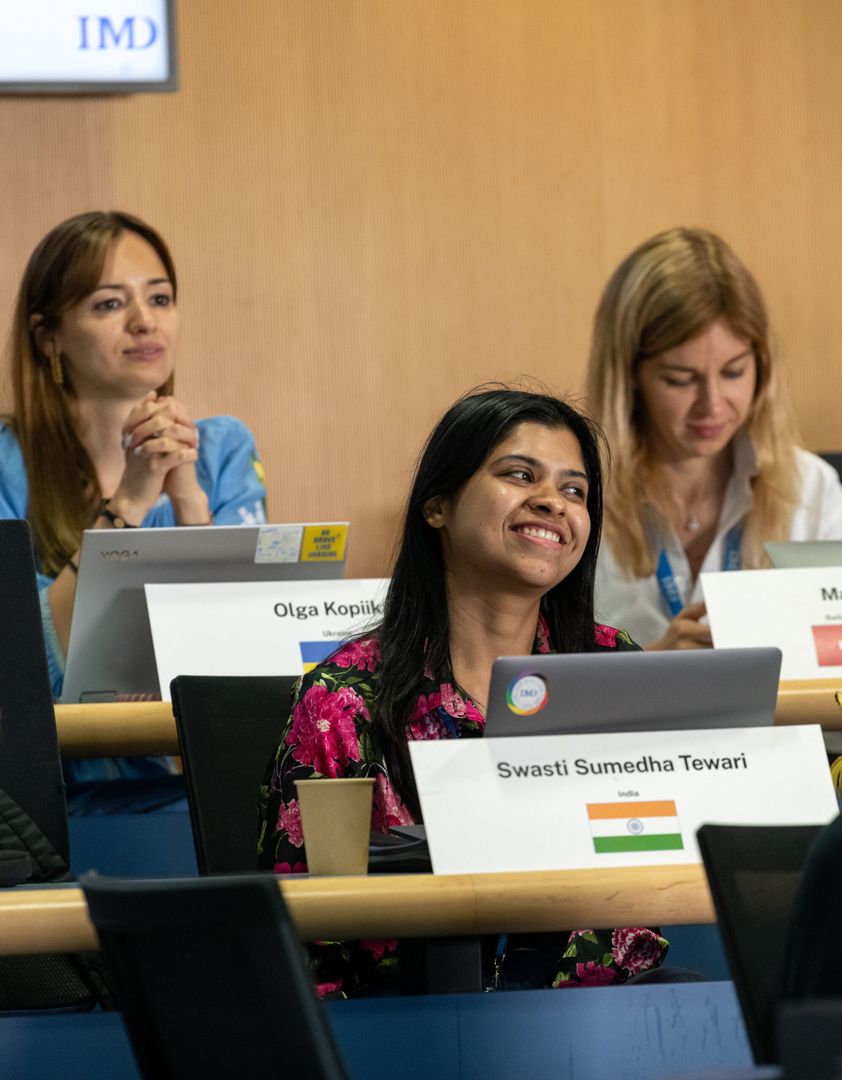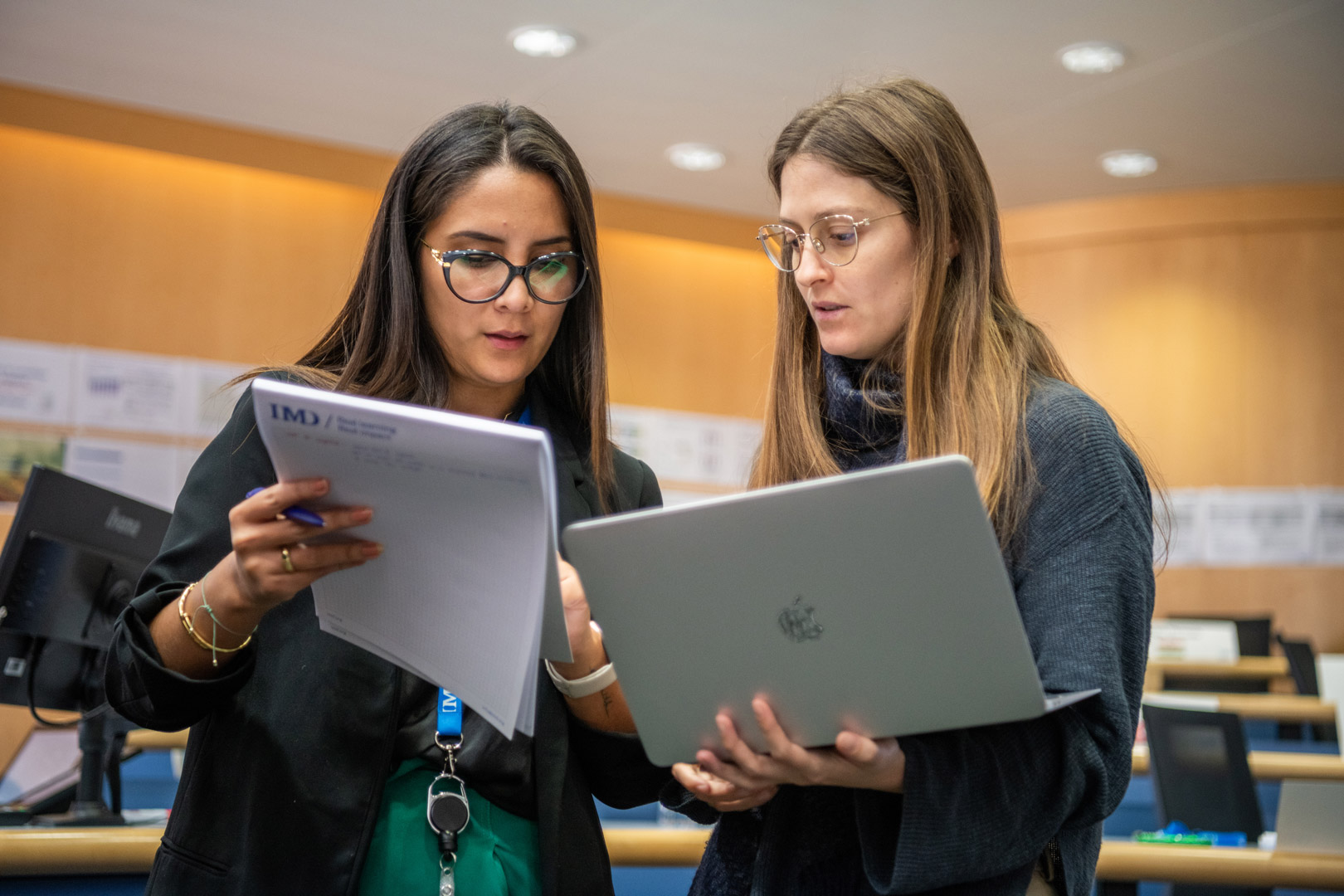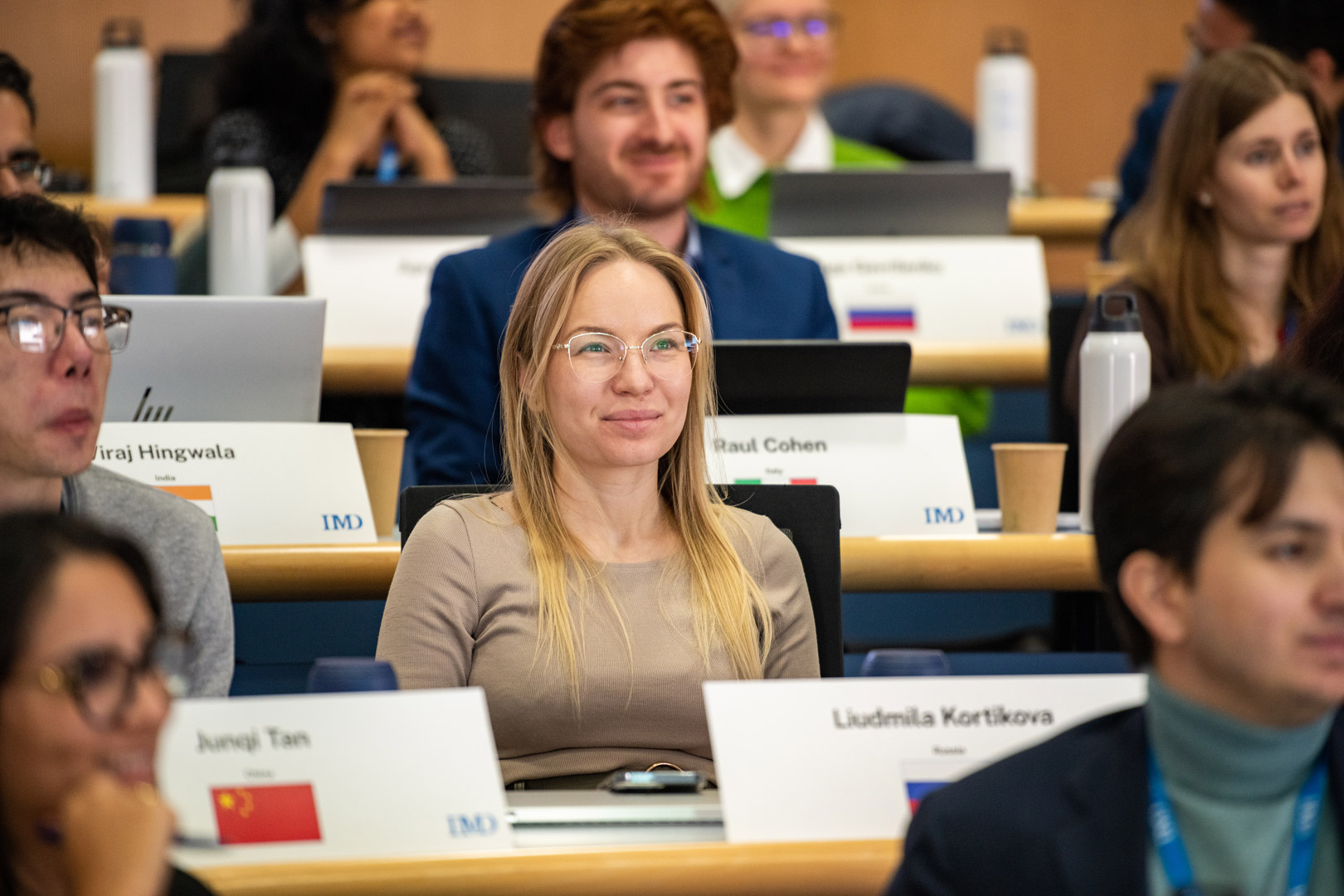IMD business school for management and leadership courses



Diversity for impact
Ensuring diversity in our programs is a key priority. Balanced representation by gender, nationality, and ethnicity in programs enhances learning, broadens perspectives, and increases IMD’s competitiveness.
We are supporting our efforts to increase the diversity in our programs through new scholarships and by offering technology-mediated programs to widen our reach.

Empowering women in business
As part of IMD’s mission, we recognize the need to support and raise the profile of women in business, notably through strengthening the dynamic network of women across our programs. We are steadily improving gender diversity in our degree programs, aiming towards gender parity. The overall improvement in gender diversity has been driven by a concerted effort to increase female enrolment in our programs. It is further supported by the community’s contribution to scholarship opportunities.
We have seen progress in the percentage of women enrolled in the MBA program. The percentage of female MBAs has reached 36% in 2023 – the highest percentage of female MBAs to date and a significant improvement when compared to female participation of 24% 10 years ago. Further, in the class of 2023, 30 female MBAs received a scholarship.
While the number of women graduating from the EMBA program in 2023 was slightly down from 2022 (26.3% compared with 30.6% in 2022), there is a wide variation between the three yearly cohorts.
Offering partial scholarships for participants was introduced in 2022 to attract more women to the program, and we will continue to seek sponsors for these scholarships in 2024. Among the three cohorts, many nationalities are represented. In 2023, we peaked at 27 nationalities in the September cohort, while in April, we had 22 nationalities, and in the December cohort, there were 24 nationalities represented.

Continuing to increase the percentages of female MBA and EMBA participants will remain a key priority of the MBA and EMBA programs’ recruitment strategy. Partnering with IMD’s donors and alumni, as well as continuing with DE&I initiatives will continue to be central to ensuring these become program destinations-of-choice for female candidates as well as candidates from other underrepresented groups.
In line with our DE&I commitments, we are also trying to feature a more diverse and representative faculty in these programs. We are applying the same approach to our case studies and guest speaker selection and encouraging our faculty to use business cases representing the world in which we operate.
Gender diversity in our MBA program
Gender diversity in our MBA program
Class size
# Females
# Nationalities
Class size
# Females
# Nationalities
Class size
# Females
# Nationalities
Class size
# Females
# Nationalities
Class size
# Females
# Nationalities
Class size
# Females
# Nationalities
Class size
# Females
# Nationalities
Class size
# Females
# Nationalities
Gender diversity in our MBA program
Gender diversity in our MBA program
Class size
# Females
# Nationalities
Class size
# Females
# Nationalities
Class size
# Females
# Nationalities
Class size
# Females
# Nationalities
Class size
# Females
# Nationalities
Class size
# Females
# Nationalities
Class size
# Females
# Nationalities
Class size
# Females
# Nationalities
Gender diversity in our MBA program
Gender diversity in our MBA program
Class size
# Females
# Nationalities
Class size
# Females
# Nationalities
Class size
# Females
# Nationalities
Class size
# Females
# Nationalities
Class size
# Females
# Nationalities
Class size
# Females
# Nationalities

Enabling talent to thrive: an act of leadership
“Scholarships give talented people an opportunity to learn and grow from others and bring their own perspectives to the table. Supporting scholarships is an act of leadership since scholarship recipients go on to do work that will benefit society,” said Judy Sikuza, CEO at The Mandela-Rhodes Foundation and a Jebsen Family Non-Profit Executive Scholarship recipient.

Partnerships are one of the decisive factors in ensuring that IMD continues to be a place where we can catalyze cross-sector collaboration. In 2023, the Jebsen Family Scholars Program for Non-profit Executives was established. The program aims to strengthen the social impact of NPOs by providing scholarship funding for their leaders to study at IMD.
The Driving Innovative Finance for Impact program, focused on blended finance and organizational readiness, was launched jointly with the International Committee of the Red Cross, the World Economic Forum, and the Lombard Odier Foundation and attracted 54 not-for-profit leaders who received subsidies to attend.
Moreover, we also offer NPOs and public-sector organizations subsidized access to our executive programs. In 2023, 27 NGO participants attended online and open enrolment programs on board governance, digital transformation, supply chain, leadership, and sustainability.